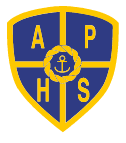Amended Curriculum
As a comprehensive school, we welcome students from a range of prior abilities and recognise that some students will have additional needs when compared to others. It is important to us that we meet those needs as fully as possible as we are able to, and help student access the national curriculum where they experience difficulties.
We have a range of interventions and initiatives to help students with Special Educational Needs and Disabilities (SEND) to make better progress, which will involve amendments to their normal timetable so that these programmes can be delivered. This is a constantly changing area of work as new programmes are added, and each programme is personalised to meet the needs of individual students, but our current provision includes the following:
“LAUNCH”
Where students in Key Stage 3 are supported in developing the skills they need to be successful in secondary education. This can involve a combination of social skills, life skills, and nurture activities.
Social Skills
Through a predominantly project-based approach, students learn essential skills such as communication and how to work well with others as part of a team. Very often this involves trying to develop students self-confidence or self-esteem and is achieved through visits to the local community as well as in-school activities in our Cluster Centre or Becketts building.
Life Skills
This programme aims to help students develop in fundamental life skills such as telling the time; using money to but things in a shop; and know how to use public transport safely as part of the Titan Travel programme. The programme also aims to help students engage with people from the community through visits to the local library; shops; visitor attractions such as the Wells Maltings: or elderly care homes such as Dorrington house.
Nurture
Some students need additional support and life experiences in order to develop into confident and self-assured young people. This can very often be restricted if students have experienced trauma in early years of childhood. Strong role models are important in this process so our SEND team work closely with students to develop their confidence and life skills
Emotional Literacy Support
Our trained Emotional Literacy Support Assistants (ELSAs). ELSAs will help children learn to understand their emotions and respect the feelings of those around them. They can provide time and space for pupils to think about their personal circumstances and how they can manage them.
“BEAT”
BEAT is a programme designed to help students beat Dyslexia. The Beat Dyslexia series has been designed to help any child who is struggling to read, write or spell. Teaching assistants working on a one-to-one basis or with small groups, introducing all the consonants, blends (e.g. pr, pl) and digraphs (two letters representing one sound: ng, th, sh, ch) and short vowels. High frequency words, the alphabet, basic punctuation and grammar (the verb, noun and adjective) are all taught using presentations that are clear and also interesting and entertaining.
Maths Interventions
Students work with teaching assistants and teachers to develop their foundations in the use of number, shape, space and measures. Being able to perform basic arithmetic is a key to many other forms of Maths and is important students make as much progress in these areas as possible.
Literacy/Reading Interventions
Using a range of reading, spelling and phonics programmes (such as Rapid Plus, Reading Eggs, Arrow, and Sound Discovery) we aim to try and accelerate progress in student literacy so that they can access more learning material.
Study Support
By Year 9 it is clear which students are still experiencing difficulties in English, Maths and Science and are also unlikely to undertake a GCSE in Modern Foreign Languages through their Options choices. These students are withdrawn from languages and instead receive 5 hours of additional support in Maths, English and Science as well as time to receive support in homework and other tasks from the wider array of subjects.
Mental Health Champions
Some students will receive specialist support in order to support with their mental health and well-being. This work also dovetails with support given through the Pastoral Team, external practitioners and medical professionals where appropriate.
At Key stage 4, students often require a different type of support in order to meet their needs if sufficient progress has not been achieved during Key Stage 3:
Guidance during Year 9 Options
All students receive high quality careers information advice and guidance from Year 8. However, during the Year 9 Options process some students are given more guidance towards GCSE and non-GCSE courses that would better suits their assessment needs. WE offer a range of qualifications which can be seen under the ‘Curriculum Overview’ section of the website
Horticulture education in combination with the Holkham Estate
It may not be appropriate for some students to undertake as many GCSE subjects as expected by progress 8 and therefore some students are able to undertake a qualification linked to Horticulture instead of a GCSE option. Subject. Lessons take place on the grounds of Holkham Estate and often lead students to longer-term employment options within the Holkham organisation.
Amended timetables
Students may be placed on a modified timetable (either short term or long-term) in order to provide capacity for the support they need. This does not always just apply to students with SEND needs but also students with medical needs; Social, Emotional and Mental Health (SEMH) needs, or even More Able, Gifted and Talented (MAGT) needs to help juggle external pressures. All provision takes place within school and students are still expected to attend school full time.
English, Maths and Science Intervention
Students may be targeted for additional short-term support in English, Maths or Science during their form time. These sessions are led by the Head of that department and the list of attendees is regularly reviewed and updated.


